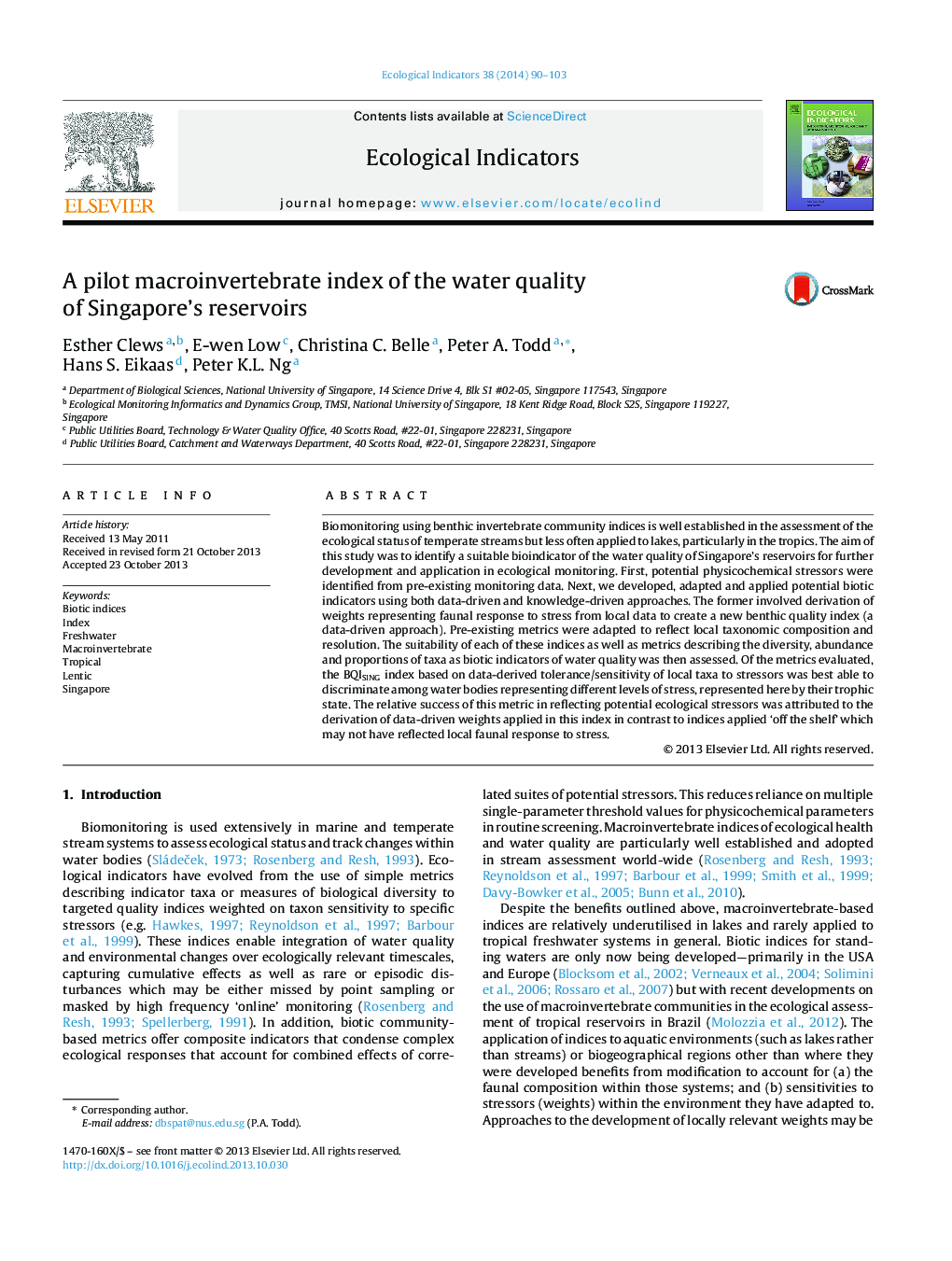| Article ID | Journal | Published Year | Pages | File Type |
|---|---|---|---|---|
| 6295166 | Ecological Indicators | 2014 | 14 Pages |
Abstract
Biomonitoring using benthic invertebrate community indices is well established in the assessment of the ecological status of temperate streams but less often applied to lakes, particularly in the tropics. The aim of this study was to identify a suitable bioindicator of the water quality of Singapore's reservoirs for further development and application in ecological monitoring. First, potential physicochemical stressors were identified from pre-existing monitoring data. Next, we developed, adapted and applied potential biotic indicators using both data-driven and knowledge-driven approaches. The former involved derivation of weights representing faunal response to stress from local data to create a new benthic quality index (a data-driven approach). Pre-existing metrics were adapted to reflect local taxonomic composition and resolution. The suitability of each of these indices as well as metrics describing the diversity, abundance and proportions of taxa as biotic indicators of water quality was then assessed. Of the metrics evaluated, the BQISING index based on data-derived tolerance/sensitivity of local taxa to stressors was best able to discriminate among water bodies representing different levels of stress, represented here by their trophic state. The relative success of this metric in reflecting potential ecological stressors was attributed to the derivation of data-driven weights applied in this index in contrast to indices applied 'off the shelf' which may not have reflected local faunal response to stress.
Related Topics
Life Sciences
Agricultural and Biological Sciences
Ecology, Evolution, Behavior and Systematics
Authors
Esther Clews, E-wen Low, Christina C. Belle, Peter A. Todd, Hans S. Eikaas, Peter K.L. Ng,
